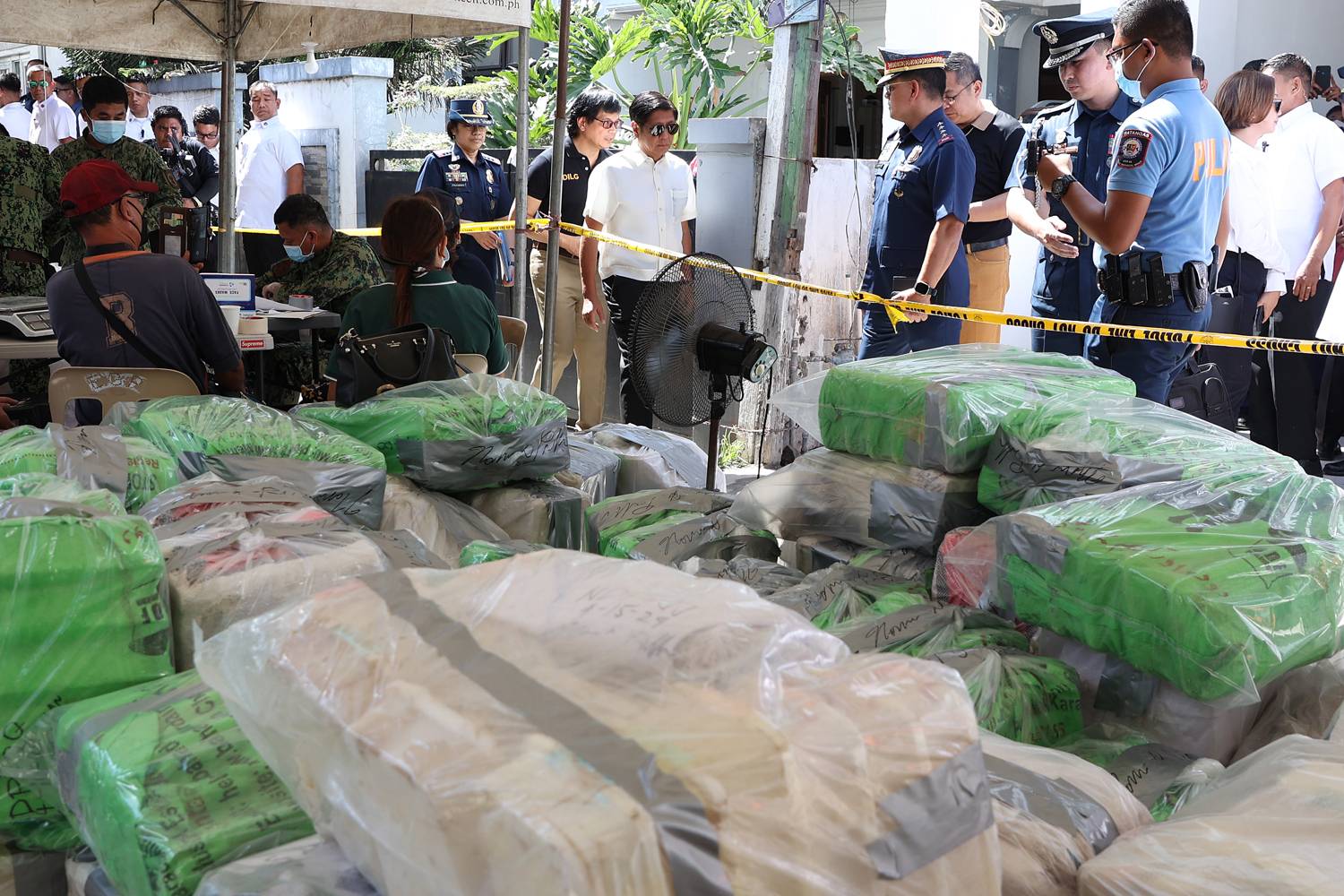Challenges in seizure of illegal drugs

What was earlier billed as the biggest seizure of illegal drugs by the Philippine National Police turned out to be less spectacular.
On April 15, the PNP announced the interception by its operatives in Alitagtag, Batangas, of “shabu” on board a passenger van that passed its checkpoint.
Initially, the PNP reported that the drugs weighed about two tons and had an estimated value of P13.3 billion. The following day, the estimate was reduced to 1.8 tons, then, on April 17, the count went down to 1.4 tons.
On account of the corrections, the estimated value of the drugs was pared to P9.68 billion, making it the second biggest haul after the March 2022 seizure of P11 billion worth of shabu in Infanta, Quezon.
The three consecutive changes in the quantity of the confiscated drugs raised eyebrows in some quarters. The drugs count looked suspicious.
Requests for estimates
There were speculations the PNP deliberately hyped up the weight and value of the drugs to make a good impression to the public. For President Marcos it did, because the day after the catch he took time to personally look at them.
He said the operation was conducted without anybody being killed. It was a subtle (but stinging) dig at his predecessor’s war on drugs that resulted in the death of thousands of Filipinos, which is now the subject of an investigation by the International Criminal Court.
Because of the stir caused by the changes in the weights of the drugs, an official of the Philippine Drug Enforcement Agency said: “We were pressured by the requests for estimate. We do not release estimates unless pressed by the press.”
In other words, it was the media’s fault.
To put an end to the speculations, Interior Secretary Benhur Abalos explained that the changes in estimates were made public because the government wants to be transparent with the incident.
Visual search
The PNP’s action does not end with the confiscation of the drugs. It should immediately file the appropriate criminal charges against the driver of the van and other people involved in the crime.
It has to make sure its evidence is airtight so the culpability of the suspects can be proven in court beyond reasonable doubt.
But there appears to be a kink in the manner the PNP conducted the drug seizure that may make it difficult for the charges to stick and to secure a guilty verdict.
Under existing PNP regulations on the conduct of inspection of motor vehicles, including motorcycles, in checkpoints, the police are limited to a visual search and that their occupants should not be subjected to physical or body search.
What’s more, the inspection must be done with due respect to innocent passersby, commuter, or bystanders in a courteous manner.
‘Fruits of a poisonous tree’
If those rules were to be applied to the Alitagtag incident, the argument can be raised that the police went beyond a visual search of the closed van when they either forcibly opened it or ordered the driver to open the enclosed part of the van where they found the drugs.
In the absence of contrary evidence, that action may be described as an unreasonable search and seizure which our Constitution expressly prohibits.
If that description gets the court’s nod, all the shabu confiscated would be considered as “fruits of a poisonous tree” and therefore cannot be used as evidence against any person accused of possession of those illegal substances.
The Supreme Court has consistently enforced the rule on the inadmissibility of evidence that were secured in violation of the citizens’ rights against unreasonable searches and seizures.
Capacity for mischief
Fair warning. The PNP should not underestimate the capacity for mischief, so to speak, of the syndicate behind the shipment to the Philippines of 1.4 tons of shabu.
That organization has the capacity to pay for the services of the country’s most astute criminal defense lawyers and public relations people who can make the police officers who manned the checkpoint look like villains, rather than officers who prevented the distribution of those drugs to the public.
There had been numerous incidents in the past when high profile illegal drugs cases were dismissed by the courts for failure of law enforcement authorities to strictly comply with the rules on the handling of drugs-related cases.
Whether or not the mishandling was deliberate is a big question mark. But it is common knowledge in the streets that drug syndicates are adept in finding and exploiting the vulnerable spots of law enforcement officials who happen to cross their path.
With the President publicly expressing pride over the seizure of 1.4 tons of shabu, it would be a big embarrassment for him and his administration if the Alitagtag incident does not result in the conviction of the guilty parties.

















